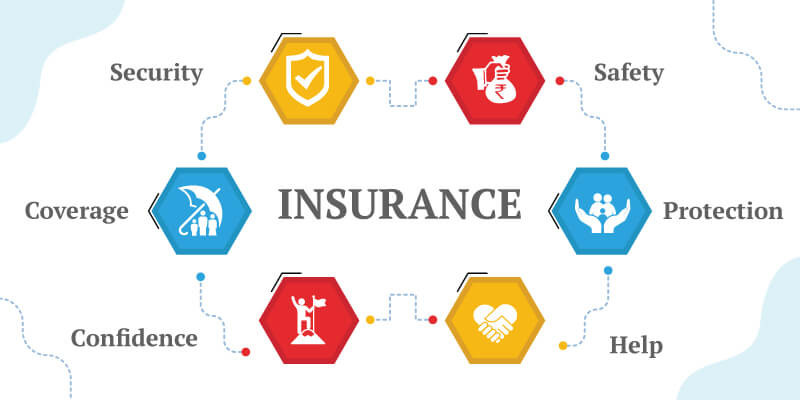Content Attributes
Your credit score may suffer long-term consequences due to inaccuracy on your credit reports. These mistakes could affect how easy it is to be approved for the best credit cards or loans and how much interest you pay.
However, you can quickly improve your credit score by disputing incorrectly listed bad items on your credit report. What you need to know about correcting any mistakes on your credit reports is provided below.
Why Does My Credit Report Contain an Error?
It can be unnerving to check your credit reports and discover an error, yet it happens frequently. According to the Federal Trade Commission’s most recent study, 26% of participants detected mistakes in at least one of their credit reports. You might be curious as to how or why a mistake ended up on your credit report.

There are a number of reasons why an error could appear on your credit report, ranging from the mild—for example, a creditor who neglected to update the information to the three credit bureaus—to the serious, such as fraudulent activity noted on your credit reports.
Among the mistakes that could significantly lower your credit score are:
- Inaccurate account balances
- Disparaging marks that date back more than seven years
- Wrong credit limits
- Bills that are shown as being overdue or late when your account should actually be current.
Your chances of being approved for credit cards, auto loans, and home loans may be impacted by errors on your credit reports that result in lower credit scores. Even if you are accepted, the interest rates will be higher. Consistently review your credit reports and promptly challenge any inaccuracies to ensure that they are accurate.
The three credit bureaus used to give away one free credit report annually. The three credit bureaus are providing free weekly credit reports through April 2022 due to the financial damage the COVID-19 outbreak has had on many Americans. Utilize these tools to assist you in keeping an eye on your credit reports.
Examine Your Credit Reports for Errors
The first step in resolving credit report issues is identifying them. Through April 2022, AnnualCreditReport.com is offering free weekly online access to your reports, which you should review at least annually but more frequently in some circumstances.
When to check your credit reports more frequently: when you have a high risk of identity theft or when you intend to apply for a loan shortly, the latter could involve becoming a fraud or data breach victim.
According to Freddie Huynh, vice president of data optimization at Freedom Financial Network, a provider of debt solutions, “be sure to analyze reports from all three credit reporting agencies; each one may have somewhat different information.”
What mistakes on your credit report are worth fixing? Look for these typical credit report mistakes as you study your credit reports:
- Inaccurate personal information, like your name, address, birth date, phone number, or Social Security number.
- Accounts that aren’t yours, such as those that are fraudulent, in collections, or that belong to someone with the same or a similar name to you.
- Reports of closed accounts being open and vice versa.
- Accounts where you are listed as an owner rather than an authorized user.
- Accounts that are currently under COVID-19 relief programs but are wrongly listed as late or delinquent.
- Multiple accounts.
- Incorrect account opening, delinquency, or last payment dates.
- Inaccurate credit limits or balances.
- Credit inquiries that you did not consent to.
- Public records, such as a bankruptcy, that don’t belong to you.
Sometimes, it will be up to the judge to decide whether to contest the error. Focus on correcting mistakes that could significantly affect your credit score.
Check Dispute Errors on Your Equifax, Experian, And TransUnion Credit Reports
The Federal Trade Commission offers instructions for disputing mistakes on credit reports. If you successfully dispute an inaccuracy, your credit reports will no longer contain the item. You can do this by contacting one of the three credit bureaus by phone or by sending a letter of protest. The three credit agencies all offer online alternatives for disputing mistakes on credit reports. The details you require to file a dispute with each credit bureau are as follows:
How to challenge inaccuracies in your Experian credit report
- To determine if your disagreement can be settled over the phone, call 866-200-6020, the number for Experian’s customer support.
- Send a letter of disagreement to Experian’s National Consumer Assistance Center at P.O. Box 4500, Allen, Texas 75013.
- Use the online dispute form provided by Experian to start a claim.
How to challenge mistakes in your credit report from Equifax
- To see if your disagreement can be settled over the phone, contact Equifax’s customer support department at 866-349-5191.
- Send a letter of dispute to Equifax’s customer care department at P.O. Box 740256, Atlanta, GA 30374-0256.
- Use the online dispute form provided by Equifax to start a claim.
How to challenge inaccuracies in your TransUnion credit report
- To see if your disagreement can be addressed over the phone, call TransUnion’s customer support line at 800-916-8800. In order to start your dispute, your TransUnion agent will require your file number, so be sure to keep a copy of your credit report handy.
- Compose a letter of dispute and mail it to the TransUnion Consumer Dispute Center at P.O. Box 2000, Chester, PA 19016.
- Use TransUnion’s online dispute form to start a dispute.
Speak with The Data Furnisher
Although you can dispute a mistake with the credit bureau, it won’t be removed from your credit report unless you do the same with the data provider. That’s because the source is the data furnisher, and the credit bureau just disseminates that data.
Your credit report will continue to display the incorrect name if, for example, you change your name with the credit reporting agency but not the data furnisher.
Review the investigation’s findings.
If the dispute results in a modification to your credit report, the concerned credit bureau is required to give you a written summary of the investigation’s findings as well as a complimentary copy. Additionally, the credit bureau is required to give you the name, address, and phone number of the source that submitted the inaccurate information.
A furnisher is required to let the credit agency in question know about your dispute if they continue to report a disputed item. The furnisher is required to notify the credit bureau to revise or remove the listing if it turns out that the disputed information was untrue. In order for the credit bureaus to update their records, the furnisher must also alert each credit bureau to which it submitted false information.
You can still ask that the credit agency include a statement in your credit file clarifying the dispute even if the furnisher is adamant that the disputed information is accurate.
Check Out Your New Report
Once your dispute has been settled, the credit bureau will send you an updated copy of your credit report. Make sure the report doesn’t contain an error. Keep checking your credit reports for mistakes, and make sure that none of the earlier ones recur.
You can read this article to learn more about disputing errors on your credit report.
It’s critical to dispute any errors you find on your credit reports as soon as you can. Erroneous information on your credit report might have a long-lasting impact on your finances. Higher credit scores and cheaper interest rates are absolutely worth the time and effort it takes to dispute a mistake on your credit reports.



